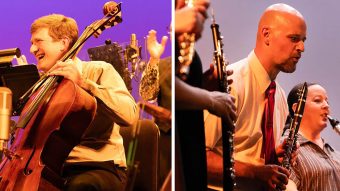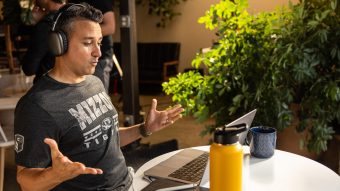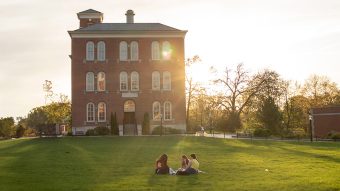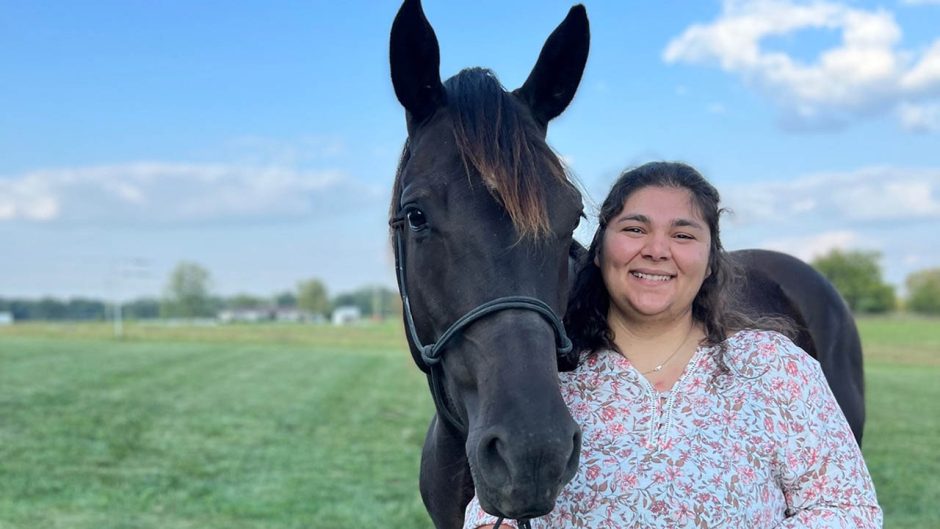
May 12, 2025
Contact: Sara Diedrich, diedrichs@missouri.edu
Photos courtesy of Gabby Balaa
Gabby Balaa had once dreamed of becoming an equine veterinarian — until life took an unexpected turn. After difficult family circumstances forced her to sell her beloved horses, the devastated teenager from Middletown, Maryland, vowed to protect her heart and never work with these majestic creatures again.
But that promise began to waver when Balaa — who earned a bachelor’s degree in chemistry from the University of Maryland — decided to rekindle her childhood dream of becoming a veterinarian, though this time, she planned to work only with small animals. Upon entering the University of Missouri College of Veterinary Medicine, however, she found herself in the company of horses once again.
In her first year, she reluctantly joined the Equine ICU team to gain hands-on experience — a decision that, despite her best efforts, reopened a chapter of her life she thought had closed for good. It was there that she met Lynn Martin, an assistant teaching professor with expertise in equine internal medicine, who quickly recognized Balaa’s natural talent with horses.

“She asked if I was planning to become an equine vet,” Balaa recalled. “I remember laughing and saying that while I liked horses just fine, I definitely didn’t want to be their doctor. But then Dr. Martin introduced me to a whole world of being an equine veterinarian — one I had spent nearly a decade convincing myself wasn’t for me.”
Before long, Balaa had rekindled her passion for these powerful companions and began pursuing a future centered on their care. This Sunday, she will graduate from the College of Veterinary Medicine and soon begin an equine internship at another Midwestern veterinary college. Her goal is to specialize in the care of young horses and, one day, contribute to the field as a teacher and researcher at a veterinary school.
“Interacting with horses is a completely different experience than working with dogs and cats,” said Balaa, who added that training often requires standing beside the 1,000-pound animal, connected only by a rope. “You are asking this animal to participate in what you are doing. They have to trust you to do it — and you have to trust them. It’s an amazing relationship.”
Read on for a Q&A with Balaa about her Mizzou experience:
Why did you choose Mizzou?
When I received my acceptance to Mizzou, I didn’t even wait to hear back from my in-state school — I accepted my seat right away. I was excited for the chance to move to the Midwest, drawn by the opportunity for additional clinical experience. During my pre-vet years, I had met several students from Mizzou, and they consistently stood out for their knowledge and professionalism. I knew I wanted to be part of a program that produced veterinarians like that.
Did you win any awards or serve in any leadership roles while at Mizzou?
I’ve won several awards presented by the College of Veterinary Medicine, Mizzou and national veterinary organizations, including the American Association of Equine Practitioners. I was also a recipient of the Remington R. Williams Award from the University of Missouri Board of Curators, which is the highest nonacademic award bestowed on students by the board. I served as president of the Class of 2025 and previously held the honor of being the inaugural president of our student chapter of the American College of Veterinary Internal Medicine. I also served as a captain for the Equine ICU Team. I am honored to have been recognized for my passion for equine veterinary medicine. It’s thanks to my mentors that I’ve had such wonderful opportunities.
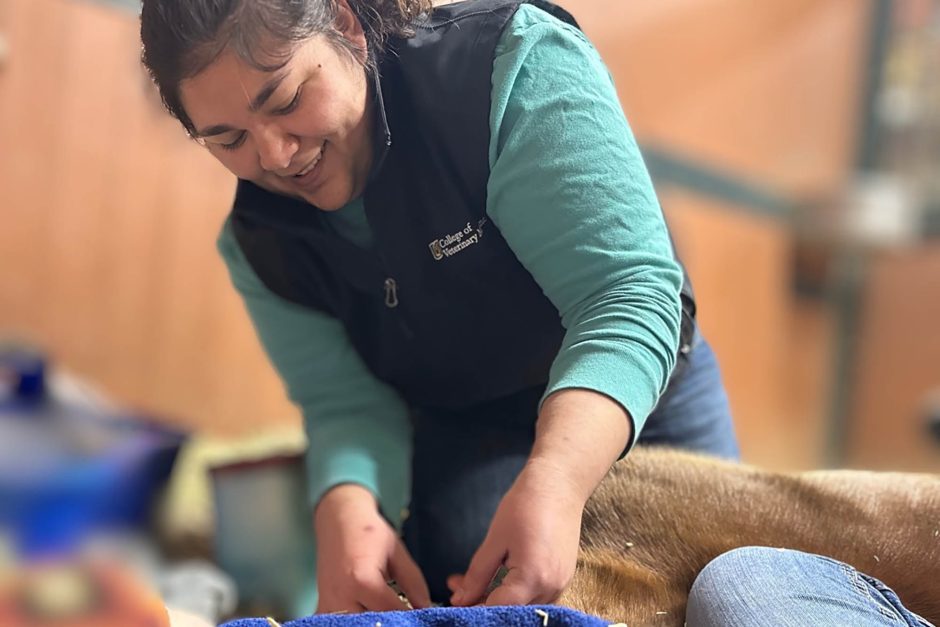
What hands-on learning opportunities at Mizzou have helped you the most?
Our clinical curriculum spans two academic years of immersive, hands-on learning. Each rotation is designed to build practical experience across a wide range of essential veterinary skills, while also introducing students to advanced, referral-level procedures. Just as importantly, we’re constantly developing our clinical reasoning — learning how to assess a patient and decipher what’s important out of their history, which is vital and takes a lot of practice. Thankfully, we get plenty of it — mostly with cats and dogs, but also with horses, cattle, sheep, goats, pigs and just about anything else that walks through the door.
Beyond clinics, the College of Veterinary Medicine is home to a number of outstanding, student-led clubs. These groups regularly organize unique labs that provide additional hands-on experience — often covering procedures and skills we might not have time to explore during clinical rotations. While it can be tough to attend every meeting, especially during the demanding third and fourth years, these clubs are a great resource. Thanks to them, I’ve had the chance to try things I might not have otherwise — like performing gastroscopies on horses.
Looking back on your college career, what are the biggest lessons you’ve learned?
I’m so grateful for my time at Mizzou — it’s surreal that this dream that I’ve had since I was 4 years old is finally coming true. I think the biggest lesson I’ve learned is the value of mentorship and friendship. Even though our profession is centered around animals, it really is the people and camaraderie that make what we do so special.
What advice would you give to incoming Mizzou students?
I would encourage incoming vet students to be active in their education. This profession is so wonderful, and there are so many equally wonderful people here at Mizzou who want to show you that. It’s a lot of work — and often you’ll have to push yourself harder than you expect — but it’s so worth it. Be active in clubs, ask questions and do your best to expose yourself to as much as possible. You never know where you’ll end up.

